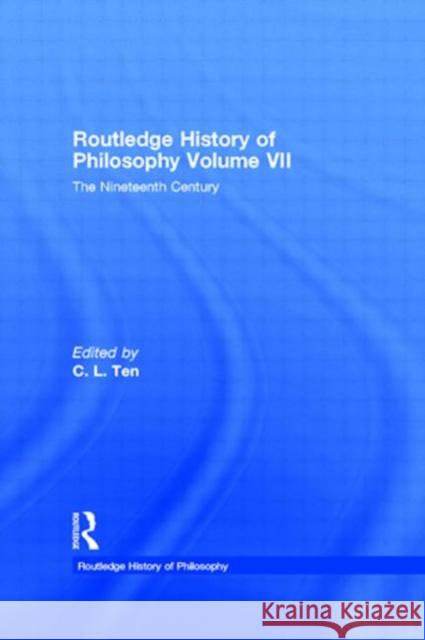Routledge History of Philosophy Volume VII : The Nineteenth Century » książka
Routledge History of Philosophy Volume VII : The Nineteenth Century
ISBN-13: 9780415060035 / Angielski / Twarda / 1994 / 496 str.
The 19th century was a period of intense intellectual activity with major advances being made in the sciences, in mathematics and in psychology, which gradually established itself as a discipline independent of philosophy. Philosophical disputes arose about the nature of scientific method and about whether, or to what extent, the understanding of human conduct and human society required the adoption of the methods of observation and experiment common to the natural sciences. Different philosophical theories about the nature of reality, the foundations of knowledge and of morality, and the limits of individual freedom were systematically developed, and many such theories are still very much alive in contemporary philosophical debates. The philosophers discussed in this volume include those belonging to both the analytical and the continental traditions, as well as the influential American pragmatists. Each chapter is written by a different author who presents the issues in the context of the period in which they arose, while also keeping an eye on their relevance to current philosophical interests.











